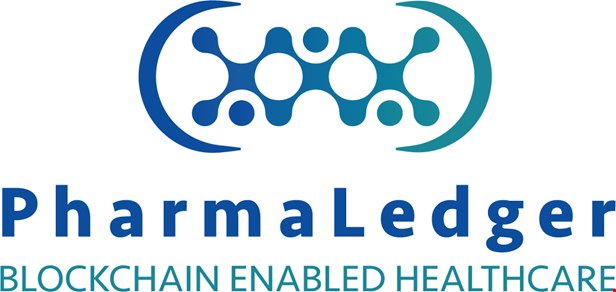PharmaLedger

Project information:
- Full title: PharmaLedger
- Duration: 36 months (1 January 2020 - 31 December 2022)
- Status: Completed
- Funding programme: Innovative Medicines Initiative 2 (IMI2; Grant Agreement 853992)
What will the project do?
- PharmaLedger will use block-chain technology to create a platform for the healthcare sector that integrates the supply chain of medicines, clinical trials, and health data as case studies.
- The project aims to drive the early-adoption of blockchain-based technology by working together with partners to build a complete solution for improving the quality of healthcare, and explore how blockchain technology can help us tackle real-world health challenges.
What is blockchain technology?
- Blockchain is most commonly known for its applications on the digital currency market, but applications for different sectors are also possible.
- The term blockchain refers to the way data and data bases are stored and managed.
- In blockchain, data is stored across multiple servers. This data is also unchangeable – so data records (known as blocks) cannot be changed or tampered with. All new data blocks are connected to previous ones, creating a chain (blockchain).
- Blockchain technology is protected by a code, and hacking or tampering with the data blocks is very difficult and costly due to how the data is stored.
What are the expected outcomes?
- An alternative framework for the digitalised healthcare industry;
- A widely used and trusted platform that will help to design and adopt other blockchain healthcare solutions;
- Help to increase the speed of innovation, ultimately benefitting the whole healthcare ecosystem – patients and manufacturers.
What is EPFs’ role?
- EPF will contribute to the project’s patient advocacy in several workstreams including governance, legal and data framework and engagement.
- EPF, together with project partners, will deliver a Collaboration Platform to support the engagement of patients and of people that support patients (like carers). EPF will support the exchange of knowledge and know-how on the design of the platform, sharing ideas, problems or issues raised by patients, and others.
- The platform will:
- Facilitate collaboration and knowledge sharing among patients.
- Link to the health data marketplace, providing an environment to engage end-users, patients and citizens.
- Support networking activities
- And support knowledge representation like images, videos, regulation updates and trainings to ultimately support the knowledge, dissemination, training and adoption of PharmaLedger blockchain services.
Why does this matter for patients?
- PharmaLedger hopes that bringing the blockchain into healthcare will help accelerate the delivery of innovation that benefits patients as well as the wider health ecosystem, and can help to improve the security of patient’s health data and secure data sharing.
- If it is successful, blockchain could provide solutions that reduce the costs of healthcare, improve and speed up drug development processes, ensure data security, and get medicines to patients faster, including those with unmet needs.
Consortium:
- The consortium is composed of 12 global pharmaceutical companies and 17 public and private entities; including technical, legal, regulatory, academia, research organisations and patient representative organisations.
- Universidad Politecnica De Madrid, Madrid, Spain
- Novartis Pharma AG, Basel, Switzerland
- Abbvie Inc, North Chicago, Illinois, United States
- Arteevo Technologies LTD, Tel Aviv, Israel
- Astrazeneca AB, Södertälje, Sweden
- Bayer Aktiengesellschaft, Leverkusen, Germany
- Boehringer Ingelheim Internationalgmbh, Ingelheim, Germany
- Dimokritio Panepistimio Thrakis, Komotini, Greece
- Ekon Modeling Sofware Systems LTD*Ekon, Modi'in-Maccabim-Re'ut, Israel
- Ethniko Kentro Erevnas Kai Technologikis Anaptyxis, Thermi Thessaloniki, Greece
- European Forum For Good Clinical Practice, Brussels, Belgium
- European Patients’ Forum (EPF), Brussels, Belgium
- Hoffmann-La Roche AG, Basel, Switzerland
- Glaxosmithkline Research And Development LTD., Brentford, Middlesex, United Kingdom
- Hospital Do Espirito Santo De Evora Epe, Evora, Portugal
- Imprensa Nacional - Casa Da Moeda, S. A., Lisboa, Portugal
- Janssen Pharmaceutica Nv, Beerse, Belgium
- Katholieke Universiteit Leuven, Leuven, Belgium
- Merck Sharp & Dohme Corp, Whitehouse Station, New Jersey, United States
- National Research And Development Institute For Cryogenics And Isotopic Technologies Icsi Rm Valcea, Ramnicu Valcea, Romania
- Novo Nordisk A/S, Bagsvaerd, Denmark
- Onorach LTD, Dundee, United Kingdom
- Ospedale Pediatrico Bambino Gesu, Rome, Italy
- Pdm E Fc Projecto Desenvolvimento Manutencao Formacao E Consultadorialda, Lisboa, Portugal
- Pfizer Limited, Sandwich, Kent , United Kingdom
- Romsoft SRL, Iasi, Romania
- Technovative Solutions LTD, Manchester, United Kingdom
- UCB Biopharma SRL, Brussels, Belgium
- Universitaetsklinikum Wuerzburg - Klinikum Der Bayerischen Julius-Maximilians-Universitat, Wuerzburg, Germany
TO LEARN MORE ABOUT THE PROJECT, VISIT THE WEBSITE AND SOCIAL MEDIA PROFILE:
Call for interest – PharmaLedger Project searching for Advisory Board Coordinators
